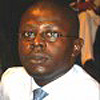Hello World!
Welcome to another edition of the Global Voices podcast.
In this edition, we’re talking about literature and publishing. You’ll hear some good old fashioned interviews with well-read members of the Global Voices team as well as readings of original work by our authors and the wider community.
Storytime
There’s some lovely stories to be told, so if you are sitting comfortably, Let's begin…
 Our first reading comes from Greece. Veroniki Krikoni is a Greek translator for Global Voices online. Her story summons up visions of the sea and the heavens. Tune in to hear her reading in Greek and English about ‘The Agreement of the Stars’.
Our first reading comes from Greece. Veroniki Krikoni is a Greek translator for Global Voices online. Her story summons up visions of the sea and the heavens. Tune in to hear her reading in Greek and English about ‘The Agreement of the Stars’.
 Our second reading comes from Nwachukwu Egbunike in Nigeria. He told us that he likes to write poetry because it is a format where a lot can be said in a few words.
Our second reading comes from Nwachukwu Egbunike in Nigeria. He told us that he likes to write poetry because it is a format where a lot can be said in a few words.
The inspiration for the poem is a friend of his who sends manuscripts for him to read. Early on in their friendship, the author was afraid that he might take his work and publish it. The writer pointed out that their friendship is based on trust.
Nwachuykwu says, “I don’t know if he has seen the poem. I posted it on my blog. We are good friends now.” So, for the podcast he is reciting his poem, ‘Can I trust you?’
Get excited for Global Voices e-books!
 The publishing industry has seen seismic change as digital methods disrupt the traditional market. But digital publishing also creates opportunities and new ways of presenting the written word.
The publishing industry has seen seismic change as digital methods disrupt the traditional market. But digital publishing also creates opportunities and new ways of presenting the written word.
Bernardo Parrella is a translator, writer and is also the Editor of Global Voices in Italian. He is now working on ways to publish Global Voices online material in new ways to make the most of the content.
Global Voices Books is a collaborative project which will provide a selection of rounded summaries for our material.
Translating stories in threatened languages
Language and translation are key elements of Global Voices and supporting under represented languages is particularly important.
 Eddie Avila is the Rising Voices Director for Global Voices online, he supports many efforts to highlight languages that we might not otherwise hear online. For the podcast he worked with and read translations of two people who write in threatened languages.
Eddie Avila is the Rising Voices Director for Global Voices online, he supports many efforts to highlight languages that we might not otherwise hear online. For the podcast he worked with and read translations of two people who write in threatened languages.
First is Elias Quispe Chura, a language activist and Global Voices Aymara translator in Bolivia. His poem reflects his desire to hear younger Aymara speakers embrace their language. He is encouraging them to speak in Spanish and learn to write in Aymara.
The second work shared by Eddie was made with Irma Alvarez Ccossco coordinator of the Rising Voices project in Peru. She now lives in Lima and says that the poem was inspired by the Baguazo, in Bagua, Peru. This was a time of persecution of the indigenous Mapuche people, and feelings of helplessness are the context for the poem.
Irma says, “These words were my way of helping to find calm, as if all those people could speak in Quechua, or simply to calm myself.”
Russian academic literature podcast
 Not only do we have great writers with global voices, we also have great editors. One of our newest editors is Kevin Rothrock who is the editor of Runet Echo. This is a special research project of Global Voices investigating the Russian language Internet.
Not only do we have great writers with global voices, we also have great editors. One of our newest editors is Kevin Rothrock who is the editor of Runet Echo. This is a special research project of Global Voices investigating the Russian language Internet.
Kevin is the co-host of a podcast called New Books in Russian Studies that discusses academic literature about Russia with their authors.
More tales and poetry
 Danica Radovanovic lives in Europe and comes from a literary and muscial family. So it’s no wonder she also writes beautifully. She's a social media researcher, internet scholar, editor in chief for Australian Science magazine and is about to defend her dissertation in Communication and Internet studies.
Danica Radovanovic lives in Europe and comes from a literary and muscial family. So it’s no wonder she also writes beautifully. She's a social media researcher, internet scholar, editor in chief for Australian Science magazine and is about to defend her dissertation in Communication and Internet studies.
Danica says the story she reads for us is an expression of herself at a particular time when she was inspired by events happening inside and outside of herself.
In seeking feedback on the work, Danica says she showed it to a number of women who found a piece of themselves in this story. Let us know in the comments if you recognise yourself in her reading of “You should date a woman who writes”.
 In our final readings for this edition we have Njeri Wangari, a Kenyan performance poet, writer and arts blogger. She runs a blog called Kenyan Poet and has been writing poetry for years as well as performing her poems. She kindly reads two poems from her collection entitled, “Minds and minefields, my spoken words”.
In our final readings for this edition we have Njeri Wangari, a Kenyan performance poet, writer and arts blogger. She runs a blog called Kenyan Poet and has been writing poetry for years as well as performing her poems. She kindly reads two poems from her collection entitled, “Minds and minefields, my spoken words”.
Well, that’s all we have time for in this edition of the podcast. Thank you to everyone who took part with their readings, writing, translation and interviews.
The Global Voices podcast, the world is talking, I hope you’ve been listening.
Music credits
In the podcast you can hear lots of lovely Creative Commons music. Thanks to Mark Cotton for his fantastic creations and thanks also to all of the wonderful voice over performances and clips that help to glue the podcast together.
Podcast: Play in new window | Download
Subscribe: Apple Podcasts | Google Podcasts | RSS









1 comment